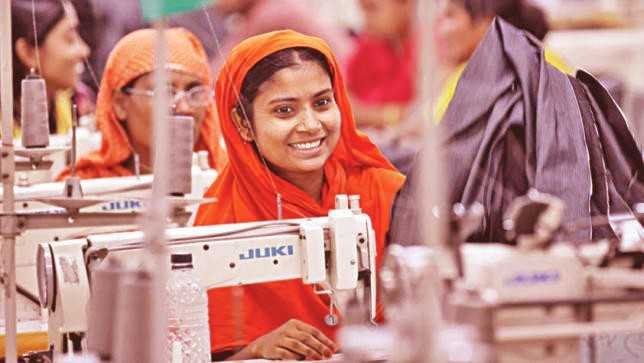Bangladesh urged to avoid worker abuse in garment industry

Image collected
Workers found in Bangladesh's garment industry deal with increased threats, intimidation and even physical and sexual misuse, according to a report for an influential U.S. Senate committee that urged authorities to accomplish more to safeguard labour rights.
The study for america Senate Committee on Foreign Relations found that while factory safety had improved because the 2013 Rana Plaza disaster, Bangladesh was backsliding on workers' rights.
"Today, a lot of Bangladesh's ready-made garment factory buildings are structurally safer, however the workers inside are not," said the survey, released by the Democrat Sen. Bob Menendez.
"Labour rights possess declined precipitously recently as union organizers contend with pressure on freedoms to associate, organize, and demonstrate. Worse, personnel are staying abused - verbally, physically, and sexually."
A senior official with the labor ministry denied there had been any backsliding on labor legal rights, but said there is room for improvement.
Bangladesh, which ranks in back of only China as a good supplier of clothes to Western countries, depends on the garment market for a lot more than 80 percent of it is exports, and about 4 million jobs.
Many top Western fashion brands produce clothing in Bangladesh and the industry has been less than global scrutiny because the Rana Plaza factory sophisticated collapsed seven years ago, killing 1,134 people.
"We want to work with the international network," stated K.M. Ali Azam, secretary at the Ministry of Labour and Occupation, promising to truly have a "detailed dialogue" with factory owners on the report's findings.
"We could have a dialogue regarding this statement and work on including the ideas that are conceivable to add," he told the Thomson Reuters Foundation on Monday.
U.S. experts travelled to Dhaka in July to talk with Bangladeshi garment workers, union activists, federal government officials and civil society representatives for the analysis, published last week.
They found union leaders faced threats and intimidation, hampering their ability to investigate claims of abuse, most of that have been from women personnel who make up the majority of the workforce in Bangladesh's garment industry.
Azim said there have been no recent reviews of major abuse of women workers.
The analysis comes amid concern over the ending on, may 31 of a mechanism led by European fashion brands that has been credited with improving working conditions in more than 1,000 factories in Bangladesh.
It'll be replaced by an exclusive monitoring entity, RMG Sustainability Council, which is made up of factory owners, union leaders and company owners.
Source: https://www.postguam.com
Previous Story
- Bangladesh urged to avoid worker abuse on garment...
- Commerce minister fears export fall due to coronavirus...
- Bangladesh's key garments sector hits a wall with...
- Asia's garment industry sees lay-offs, factories closing because...
- Subsequent challenges of Bangladesh's RMG
- Has Bangladesh made progress on the rights of...
- Cotton and yarn update
- Is denim offering new trusts in Bangladesh's clothing...